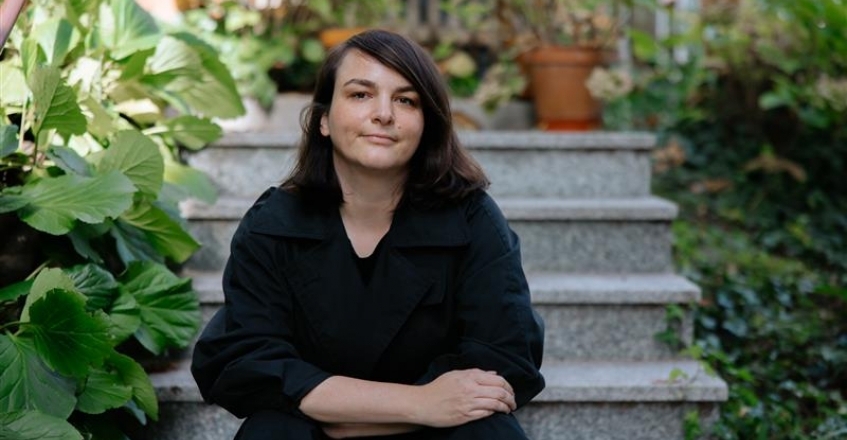Objave
Dalija Dozet: It's Exciting to Watch Through Someone Else's Eyes Something You've Seen So Many Times Before
The legacy of the prematurely deceased Danijel Dozet is an immense collection of film footage - analog and digital, unmarked, undated, unsorted, and never viewed. In the hands of his daughter, director Dalija Dozet, this material in the film My Dad’s Lessons opened windows into a world of which she herself had been a part.
Megamix of Emotions
The legacy of the prematurely deceased Danijel Dozet is an immense collection of film footage - analog and digital, unmarked, undated, unsorted, and never viewed. In the hands of his daughter, director Dalija Dozet, this material in the film My Dad’s Lessons opened windows into a world of which she herself had been a part. The film was screened in Competition Programme - Documentary Film of 31st Sarajevo Film Festival.
As an author, you have already dealt with the family theme. How different is it to make a film with a living mother compared to this one about a deceased father?
I think the answer lies in your question: my mother can respond, recognize, and either accept or not what I speak about in the film. Our relationship can continue to grow. My father is no longer here to respond and react. Our relationship ended with his passing, but at the same time, from my side, it has in a way deepened through the process of watching the recordings.
Was the ultimate purpose of years of recording such a large amount of film and video material that your dad never watched was for you to review?
I don't think so, or rather, if he did, I believe that dad would have made an effort to make it neater in some way or let me know that he expected it. Maybe he himself had planned to review the recordings one day, but that day never came. I'm honestly not entirely sure he would have had the patience to sit and watch. It seems to me that the act of recording itself interested him the most and subconsciously (and sometimes intentionally) guided him through life's situations.
From the death of your dad to the completion of this film, a whole decade has passed. How emotionally exhausting was your journey through his recordings, and how comforting or cathartic?
Watching footage of my family before and after my own existence, my dad's experience of the world, bits of our relationship that I don't remember and those that I didn't know were recorded, intertwined into a megamix of the most diverse emotional states. Sometimes I would laugh out loud, and sometimes I would cry nonstop, wondering or questioning, getting angry.
The decision to make a film out of it resulted in a long editing process in which it was very challenging not to get emotionally attached but to find a new angle of view, to decide what I wanted and what worked for the film. When it all comes together, I am grateful for all of his footage because through them I got the opportunity to get to know and understand him a little better, and thus, in a way, let him go more easily.
Are you more like your dad than you expected, or were you aware of it, before the film?
Probably.
What is the experience of sharing something to this extent personally with the audience, how do you feel when you watch your film in a hall full of unknown people?
It's exciting and very intense to watch something you've seen so many times before - through someone else's eyes, and finally experience the film through the audience's reaction.






